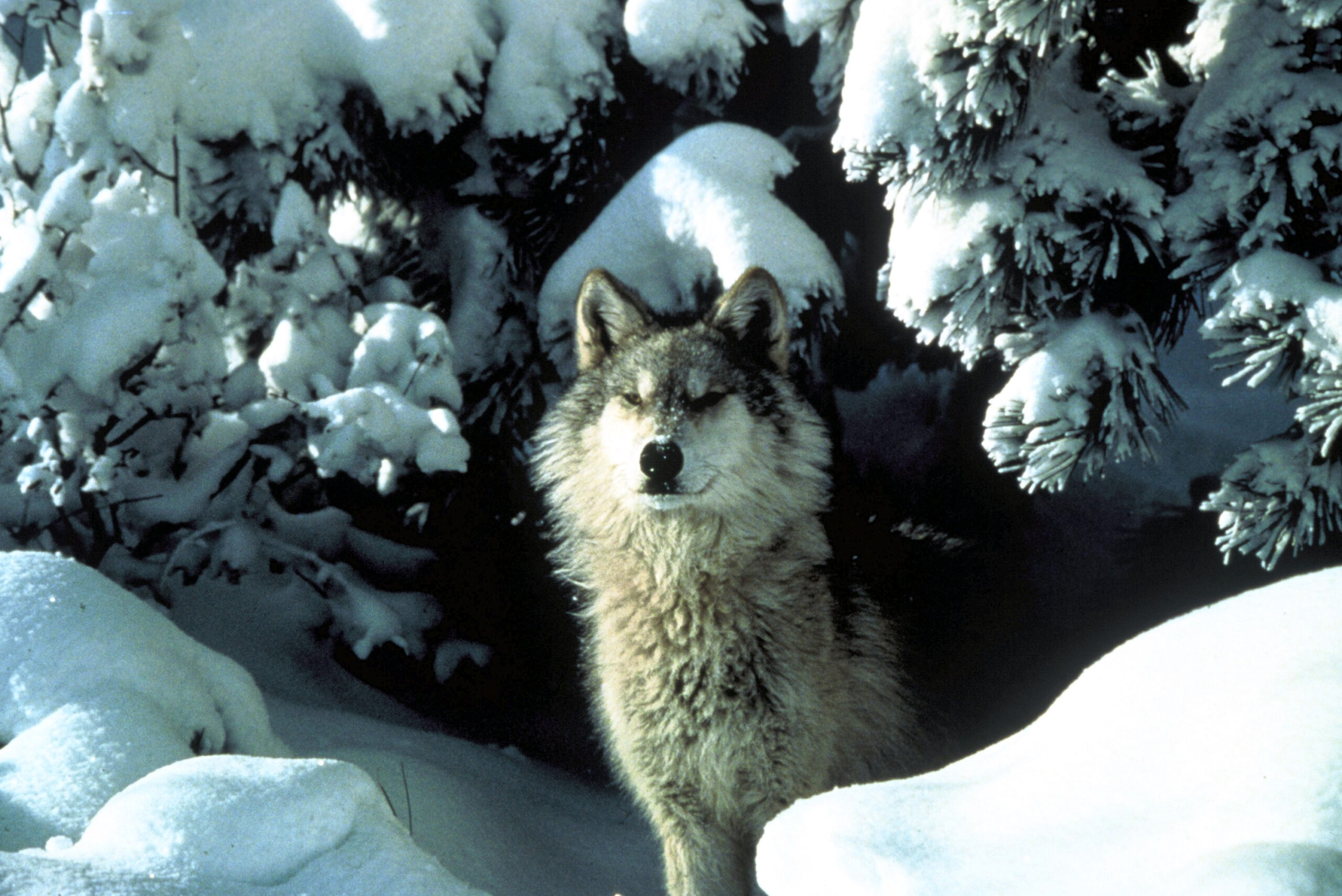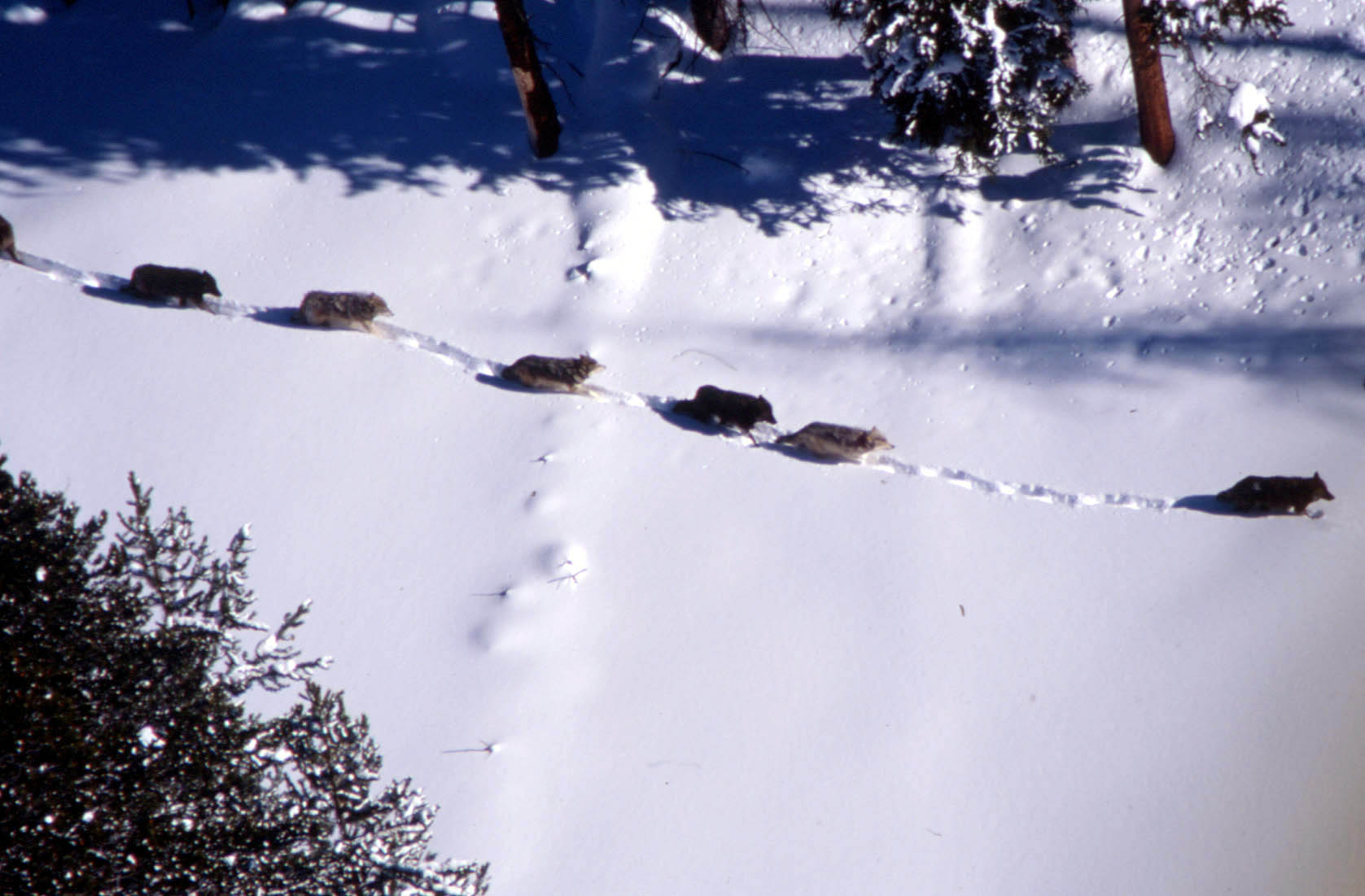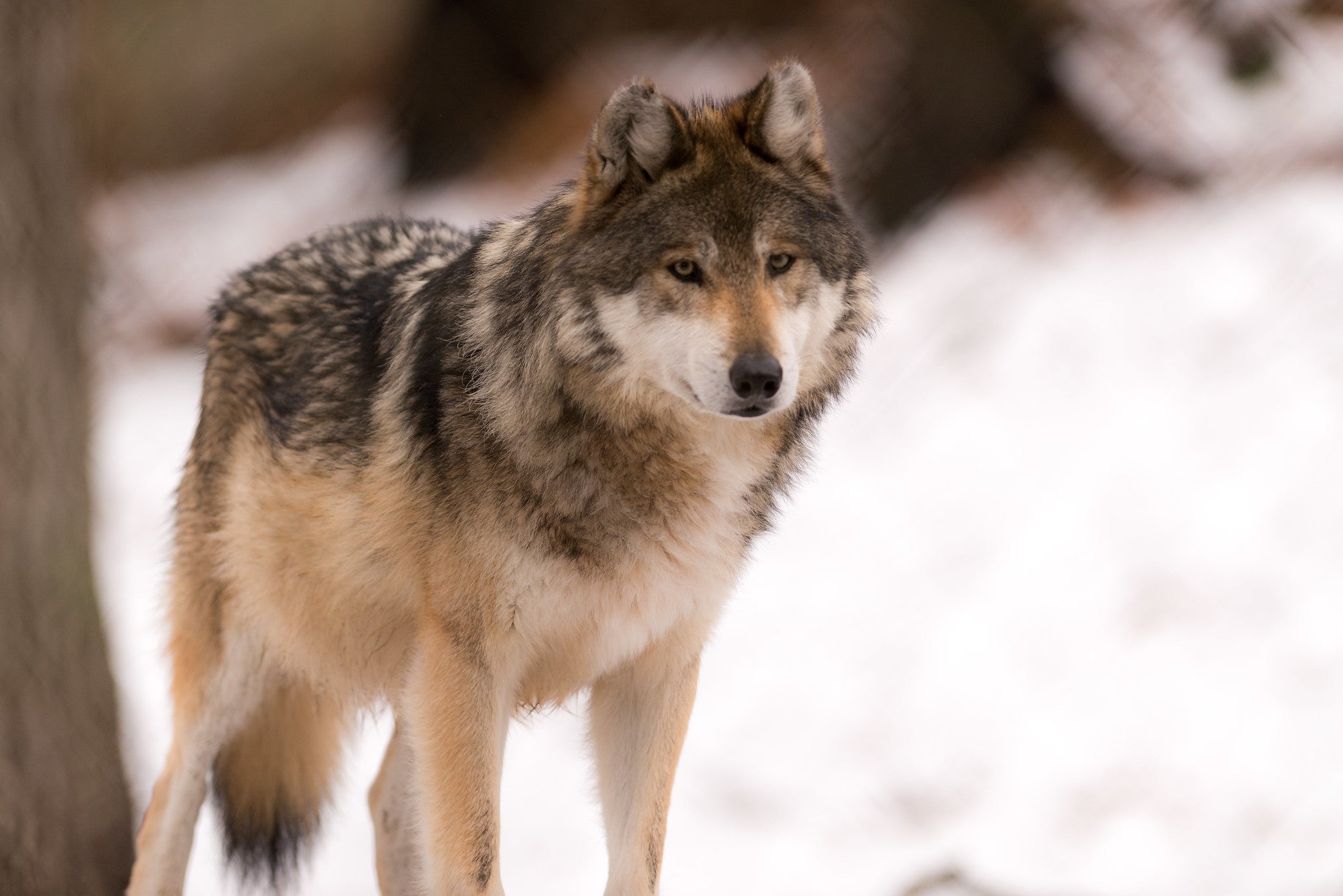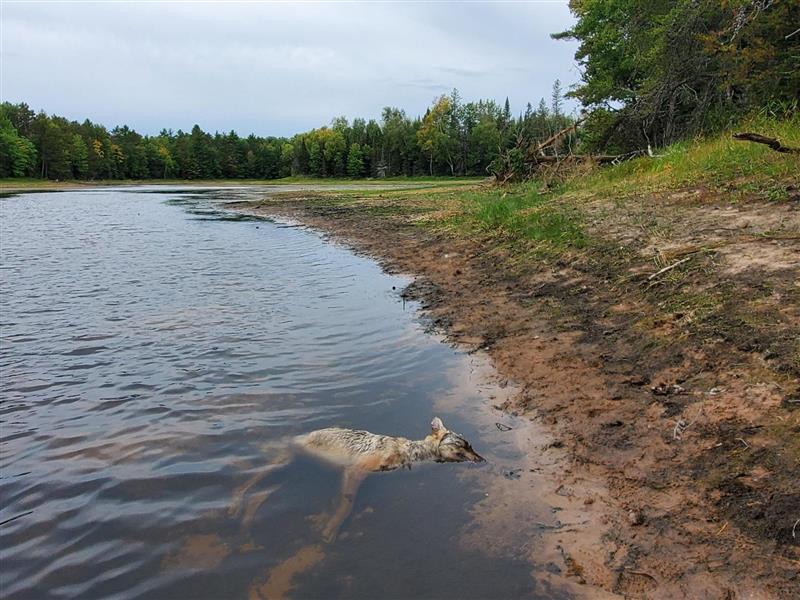Wildlife and environmental groups are suing the Trump administration to restore federal protections for the gray wolf after the animal was removed from the endangered species list across most of the country, including in Wisconsin. The lawsuit comes as some wildlife groups in Wisconsin are pushing the state to resume the wolf hunt.
A coalition of groups including the Sierra Club, Defenders of Wildlife, and the Humane Society of the United States filed the lawsuit on Thursday. The groups said in a news release that the U.S. Fish and Wildlife Service disregarded science that shows wolves haven’t recovered to their historic range.
“Without (Endangered Species Act) protections in place, wolves will be exposed to fairly excessive hunting and trapping seasons in some states,” said Nicholas Arrivo, managing attorney for the Humane Society of the United States. “And, we know that the fragile populations in areas like the Pacific Northwest or the southern Rocky Mountains, where wolves are just only beginning to establish a toehold, we’ll never be given a chance to fully recover.”
Stay informed on the latest news
Sign up for WPR’s email newsletter.
The Trump administration announced last fall that it would remove the gray wolf from the endangered species list. The delisting took effect last week. Interior Department spokesperson Vanessa Kauffman said in a statement Thursday that the decision to delist the wolf was based on the best scientific and commercial data available.
“After more than 45 years as a listed species, the gray wolf has exceeded all conservation goals for recovery,” said Kauffman. “This action reflects the determination that this species is neither a threatened nor endangered species based on the specific factors Congress has laid out in the law.”
Farmers and hunters in Wisconsin have urged congressional lawmakers to delist gray wolves that have begun to prey more on livestock and pets while their numbers have grown. Wisconsin’s wolf population grew 13 percent in the most recent count to more than 1,000 wolves, according to state data. The state once had as many as 5,000 wolves before they were hunted nearly to extinction.
The Wisconsin Department of Natural Resources announced in December that it would resume Wisconsin’s wolf hunt next November. Under state law, the agency is required to hold a hunt from Oct. 15 through the last day of February.
The decision to postpone the season has drawn backlash from state Republican lawmakers and groups who support the wolf hunt, including the Wisconsin Bear Hunters Association and Wisconsin Wildlife Federation.
Lawmakers and groups said Wednesday it’s “shameful” that the DNR didn’t answer questions at a joint informational hearing before the Senate and Assembly Committees on Sporting Heritage. The Senate committee’s chair, Sen. Rob Stafsholt, R-New Richmond, said it was “infuriating” that the agency didn’t appear before the committee.
DNR spokesperson Sarah Hoye said Thursday that the agency submitted written testimony because there was not an option to testify remotely due to the COVID-19 pandemic. Rep. Dianne Hesselbein, D-Middleton, and Megan Nicholson, Wisconsin State Director of the Humane Society of the United States, said they were also denied the option to appear virtually at a time when federal and public health officials have called for social distancing and wearing masks.
“Although gray wolf management will be under state authority in early 2021, implementing a wolf season requires adequate time not only to develop a science-based harvest quota but also to engage the public and tribal partners in the development of a season plan that adequately reflects the interests of diverse stakeholders throughout Wisconsin,” the DNR wrote.
George Meyer, executive director of the Wisconsin Wildlife Federation, argued the wolf population continues to grow without active management. Meyer, a former DNR Secretary, said the agency needs to reestablish the wolf hunting and trapping seasons as soon as possible.
“The department knew for a year that the gray wolf was going to be delisted and should have had in place all the regulatory elements for a wolf hunt for January and February of this year,” said Meyer.
The Humane Society’s Nicholson argued some lawmakers at the hearing are bent on resuming the wolf hunt and slashing the population to a dangerously low level.
“It is high time lawmakers remove the statutory language requiring a wolf hunting and trapping season, and agency officials revise the sorely outdated emergency rule and scientifically unsupported Wolf Management Plan,” said Nicholson in a statement. “Wisconsin’s wolves, and the majority of our state’s citizens who want them to remain protected, deserve better.”
The state’s 1999 wolf management plan set a goal of 350 wolves for the state based on population projections at the time. Groups like Wisconsin’s Green Fire have urged the DNR to maintain a wolf population at levels seen over the past several years until a new plan is developed.
A small population of Mexican gray wolves remain under federal protection in the southwest U.S.
Wisconsin Public Radio, © Copyright 2025, Board of Regents of the University of Wisconsin System and Wisconsin Educational Communications Board.





